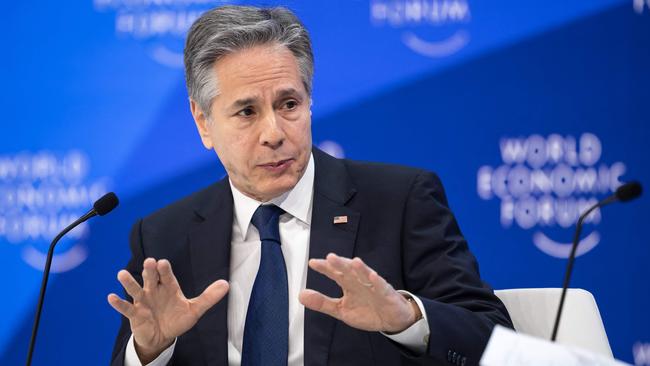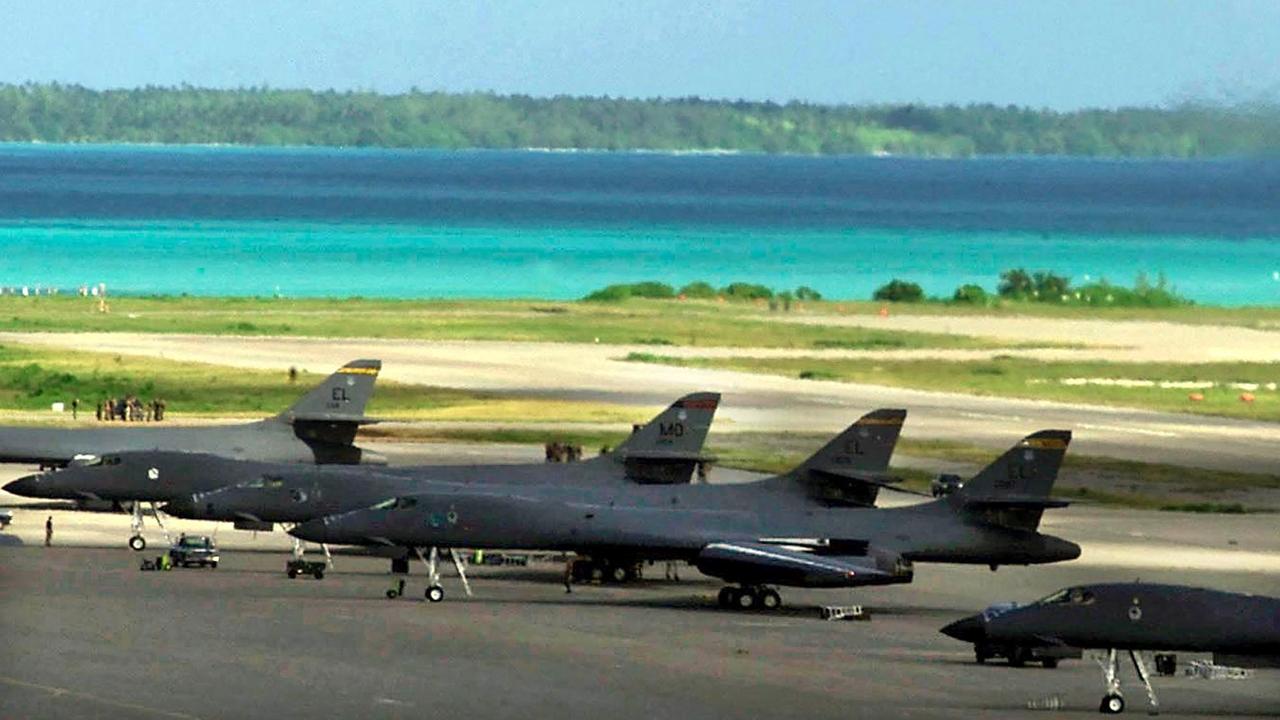Washinton has been left on the back foot in the Middle East

The wheels hadn’t quite come off, but as signs of America’s waning influence in the Middle East, Antony Blinken’s plane getting stuck at Davos on Wednesday took some beating. His efforts to secure peace in the region have singularly failed to get off the ground.
The globetrotting US Secretary of State, has spent much of the last month jetting across the Middle East while attempting to stop the war in Gaza escalating into a regional conflict in which Iran and its proxies battle Western interests. Looking at events in Yemen, in the Red Sea, in Pakistan and Iran, and on the Lebanese border with Israel, it seems, however, that his mission has failed. In the background, meanwhile, Russia and particularly China, make diplomatic inroads.
Under Joe Biden, Washington gave up trying to resolve the Israeli-Palestinian conflict, while underestimating the reach and ambitions of Iran. Those missteps have come back to haunt it.
In early October, days before the Hamas attacks on Israel that led to the widening regional crisis, Blinken had been preparing to visit Saudi Arabia to nail down a mega-deal that would seal the country’s recognition of Israel, in return for US security guarantees to Riyadh and Israeli concessions to the Palestinians. The region was at its calmest for decades, Jake Sullivan, the US National Security Adviser, said.
That assumption collapsed in a day. Israel’s response to the shocking attacks that killed 1200 Israelis has destroyed Gaza and killed more than 23,000 Palestinians. Houthi rebels in Yemen, who were negotiating a peace deal with Saudi Arabia, have paralysed shipping in the Red Sea, breaching global supply chains and setting off a military conflict with the US and Britain. Iranian proxies conduct almost daily attacks on Israel and US forces in the region, while Iran and Pakistan are engaged in cross-border strikes.
In Blinken’s latest tour, every Arab country he visited told him the US needed to pressure Israel to stop the war, while offering the Palestinians a path to a state. “They mostly ignored the Palestinian issue and obviously, it couldn’t be ignored,” Ali Shihabi, a Saudi commentator and analyst, said.
Shihabi said there had been other US missteps in the region, including misreading the Houthis as a local Yemeni rather than a regional or even global threat, against Saudi advice. After conducting airstrikes with Britain last week against Houthi positions in Yemen, the US redesignated the group as terrorist, three years after Biden removed it from the list.
Anna Jacobs, the senior Gulf analyst with the International Crisis Group, said: “The first step in de-escalation is to reach a ceasefire in Gaza and this requires more serious US pressure on Israel. But it also requires more pressure from Gulf states that have leverage with Israel, in particular Saudi Arabia and the UAE.”
That could deprive the Houthis, and other Iranian allies who claim their attacks are motivated by the war in Gaza, of a pretext. But there is no guarantee they would not find another grievance down the road when needed.
Although the US is dangling a deal with Saudi Arabia – the crown jewel of Arab states – as an incentive for ending the war, the proposition would now seem less appealing to Israel than it did before the October 7 attacks, which traumatised the country and hardened views on the Palestinian issue.
The Times


